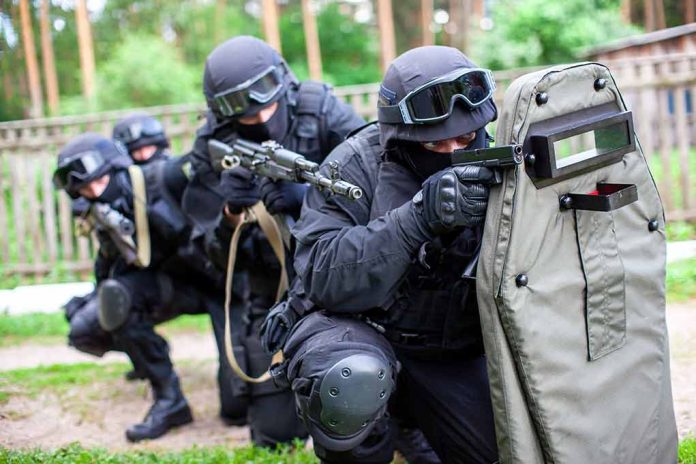
FBI agents raided the home of a Russian-born strategist who was a key figure in Donald Trump’s 2016 presidential campaign, stirring renewed interest in the lingering investigation into election interference.
At a Glance
- Federal agents searched the residence of a strategist linked to Trump’s 2016 campaign.
- The raid is part of a broader investigation into potential election-related collusion.
- The Mueller report found no sufficient evidence of criminal conspiracy between Trump and Russia.
- The investigation resulted in charges against numerous individuals and revealed extensive foreign interference.
FBI Raid on Strategist’s Home Linked to Trump Campaign
Federal Bureau of Investigation (FBI) agents conducted a search operation at the home of a Russian-born strategist actively involved in Donald Trump’s 2016 presidential campaign. Known for providing analytical support and strategic insights, particularly on U.S.-Russia relations, this individual has become a focal point in ongoing investigations into possible collusion between the campaign and Russian efforts to influence the election.
The raid marked a significant development in the broader federal investigation aimed at identifying and addressing foreign intervention in American politics. This strategic investigation underscores the persistent focus on foreign interference interventions, revealing collusion allegations and efforts to safeguard U.S. democratic institutions.
FBI raids US home of Russian-born analyst who advised Trump in 2016 https://t.co/2FtUD94RrJ
— Guardian US (@GuardianUS) August 17, 2024
Detailed Timeline of the Mueller Investigation
The investigation into Russian interference in the 2016 U.S. elections, led by special prosecutor Robert Mueller, spanned from May 2017 to March 2019. Notably, the Mueller report concluded that while the Trump campaign welcomed Russian interference and expected to benefit from it, there was insufficient evidence to establish a criminal conspiracy.
On July 13, 2018, a federal grand jury indicted 12 Russian military intelligence officers, accusing them of various charges, including a computer hacking conspiracy, unauthorized access, document theft, and staging releases to interfere with the election. Further charges included aggravated identity theft, false domain registration, and conspiracy to commit money laundering.
“The investigation did not establish that members of the Trump campaign conspired or coordinated with the Russian government in its election interference activities.”
Continued Legal and Political Ramifications
The Mueller probe resulted in significant legal outcomes, including charges against 34 individuals and 3 companies, 8 guilty pleas, and a conviction at trial. Prominent figures such as Michael Flynn and Paul Manafort were indicted, shedding light on the complex network of interactions between the Trump campaign and Russian representatives.
Despite the extensive findings, the investigation faced criticism and allegations of bias from Trump and his supporters. The Mueller report’s release in April 2019, though pivotal, did not conclusively determine whether President Trump had obstructed justice, citing a Justice Department guideline against indicting a sitting president.
Broader Implications of Election Interference Investigations
The investigation also explored whether Trump’s dismissal of FBI Director James Comey constituted obstruction of justice. With Attorney General Jeff Sessions’ recusal, Deputy Attorney General Rod Rosenstein oversaw the probe. Attorney General William Barr and Rosenstein eventually decided there was insufficient evidence to charge Trump with obstruction of justice.
The Russia investigation revealed ongoing and extensive efforts by foreign entities to undermine U.S. democracy, including social media campaigns and sophisticated hacking operations targeting U.S. election administration entities. These findings have prompted ongoing vigilance and measures to protect future elections from similar foreign threats.
The implications of these investigations extend beyond the immediate political arena, affecting national security policies and election safeguards. As the U.S. continues to confront and mitigate foreign intervention risks, the lessons learned from the 2016 election investigations remain crucial to preserving the integrity of future democratic processes.
Sources
- RUSSIAN INTERFERENCE IN 2016 U.S. ELECTIONS
- Report On The Investigation Into Russian Interference In The 2016 Presidential Election
- Conspiracy Against the United States: The Story of Trump and Russia
- The 332 people connected to the Russia probes
- Here’s what we learned about Team Trump’s ties to Russian interests
- Trump and Russia: What to expect from Mueller in 2019
- Russia investigation
- Ex-Trump advisor whose home was raided by FBI says search was intimidation attempt







